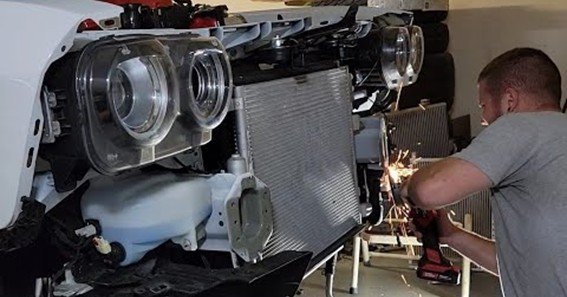In the realm of automotive performance, managing intake air temperatures is crucial, especially for forced induction (FI) engines. An FI interchiller is a device designed to lower the temperature of the air entering the engine, thereby enhancing performance and efficiency.
Understanding Interchillers
An interchiller functions by integrating with the vehicle’s air conditioning system to cool the intercooler fluid, which in turn reduces the temperature of the air entering the engine. This process leads to denser air intake, allowing for more oxygen in the combustion chamber and resulting in increased power output.
Benefits of Using an Interchiller
-
Increased Horsepower: By lowering intake air temperatures, interchillers enable the engine to produce more power.
-
Improved Efficiency: Cooler air intake leads to better combustion efficiency, enhancing overall engine performance.
-
Reduced Heat Soak: Interchillers help mitigate heat soak issues commonly associated with FI engines, maintaining consistent performance.
Installation Considerations
Installing an interchiller requires modifications to the vehicle’s air conditioning and intercooler systems. It’s essential to consult with professionals experienced in such installations to ensure compatibility and optimal performance.
Conclusion
An FI interchiller is a valuable addition for enthusiasts seeking to maximize the performance of their forced induction engines. By effectively reducing intake air temperatures, interchillers contribute to significant gains in power and efficiency.
FAQs
-
What is an FI interchiller?
- An FI interchiller is a device that cools the intake air of forced induction engines by integrating with the vehicle’s air conditioning system, leading to increased power and efficiency.
-
How does an interchiller improve engine performance?
- By reducing the temperature of the intake air, an interchiller increases air density, allowing for more oxygen in the combustion chamber and resulting in higher power output.
-
Are interchillers compatible with all forced induction systems?
- Compatibility depends on the specific vehicle and its existing systems. Consulting with a professional installer is recommended to determine suitability.
-
Does using an interchiller affect the vehicle’s air conditioning performance?
- Since interchillers utilize the vehicle’s air conditioning system, there may be a slight impact on cabin cooling efficiency. However, many systems are designed to minimize this effect.
-
Is professional installation necessary for an interchiller?
- Yes, due to the complexity of integrating with the vehicle’s existing systems, professional installation is recommended to ensure proper functionality and avoid potential issues.










